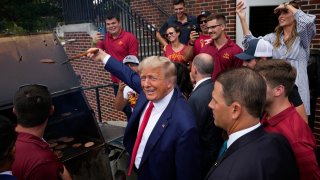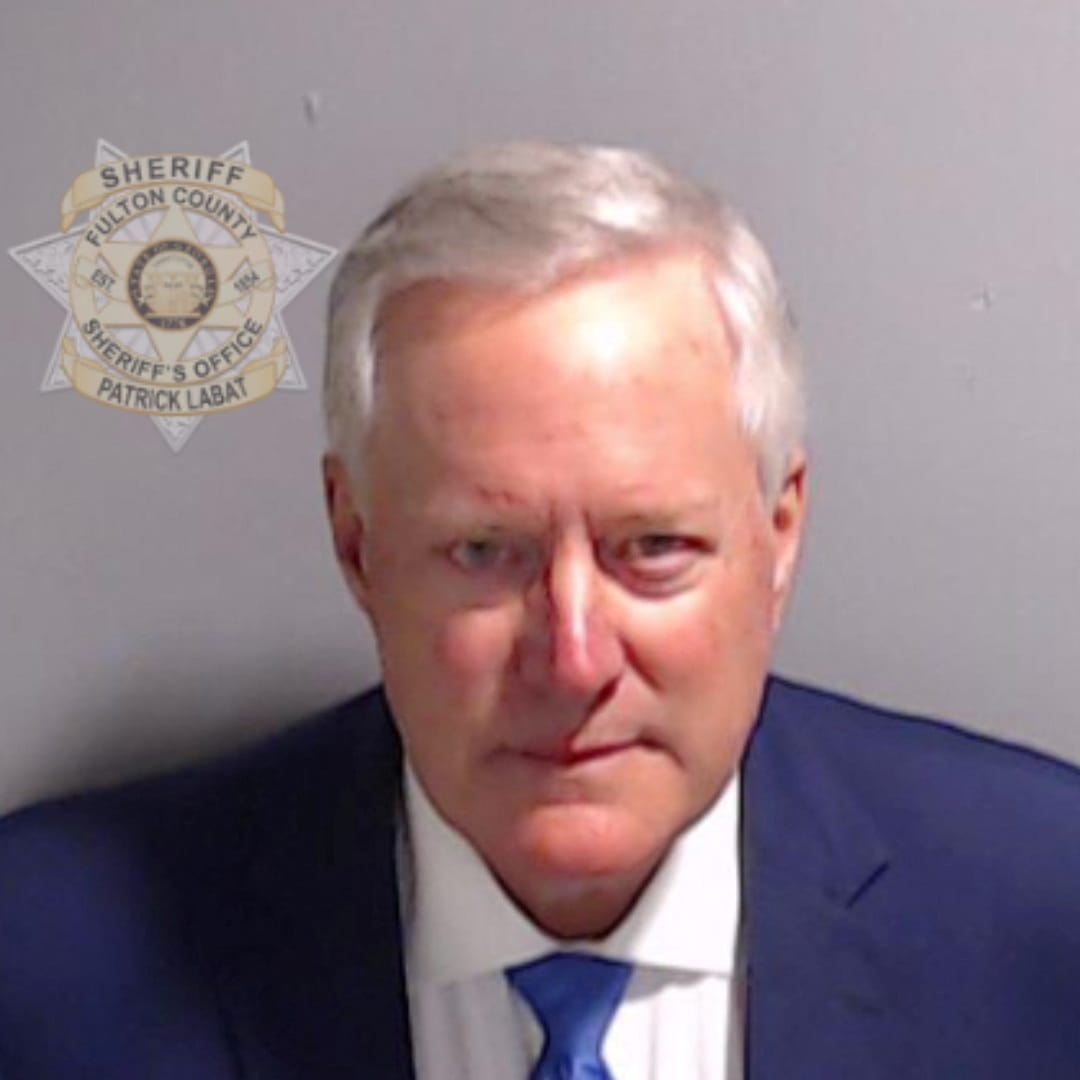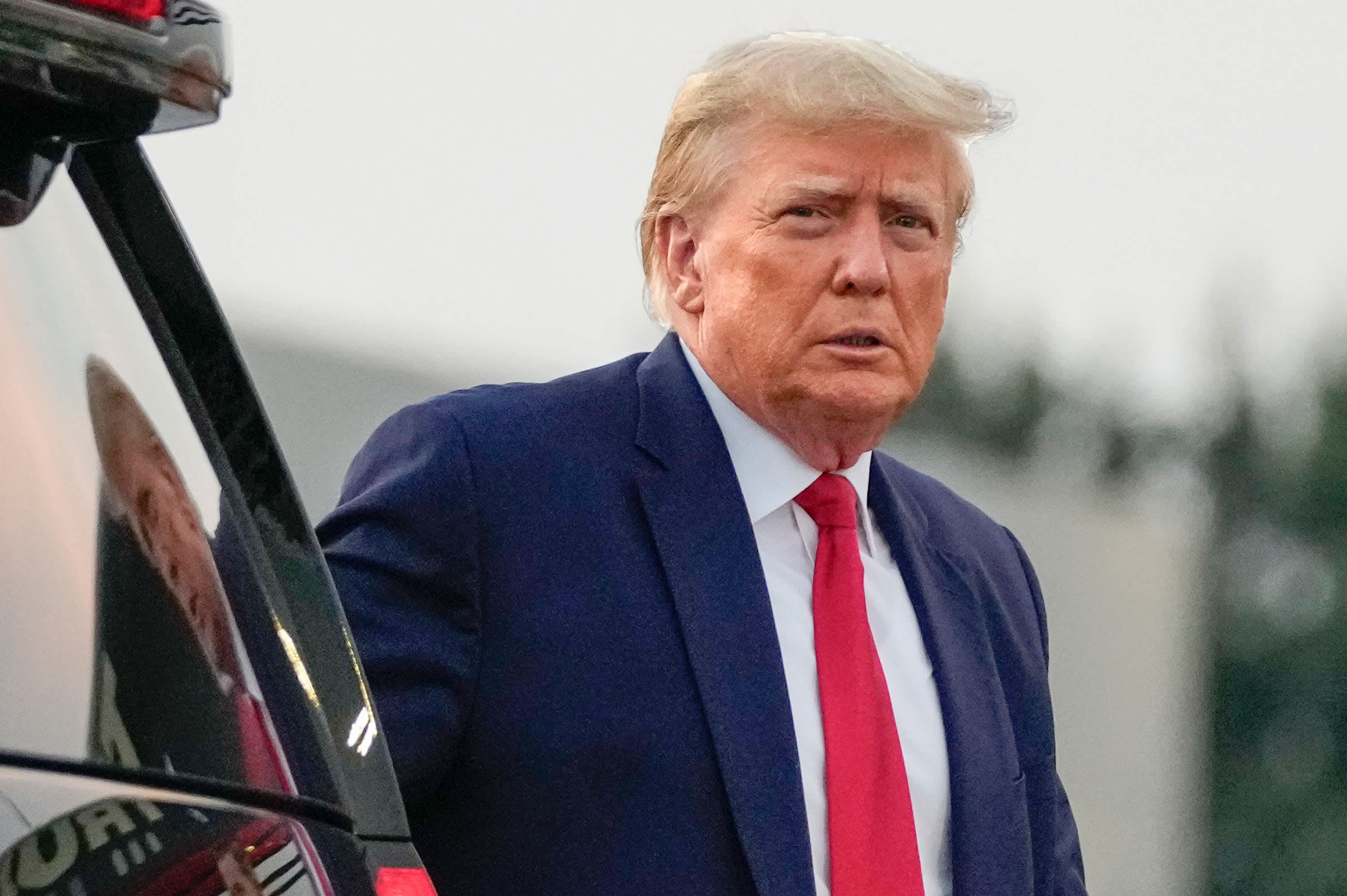
Donald Trump stepped out of a fraternity house to the cheers of hundreds of Iowa State University students and tossed autographed footballs into the crowd.
“I guess the youth likes Trump,” he said over the cheers of the students, speaking to the Right Side Broadcasting Network, which supports his candidacy.
Then, the former president entered a motorcade to head to a private stadium suite where he watched the school's annual football grudge match Saturday with the University of Iowa.
The pregame campus stop was a reminder of Trump's dominant position atop a crowded Republican field both in Iowa and nationally. Several of his rivals also attended the game, mingling with fans at pregame tailgates outside the stadium. But Trump got by far the most attention and hasn't paid a price yet for skipping the closer interactions with voters that are a cherished Iowa political tradition.
We've got the news you need to know to start your day. Sign up for the First & 4Most morning newsletter — delivered to your inbox daily. Sign up here.
Florida Gov. Ron DeSantis, who has struggled to position himself as a potent foe to Trump, came to Ames to attend the game with Iowa Gov. Kim Reynolds, who has not endorsed a candidate but often has appeared with DeSantis and his wife, Casey.
As he moved from one tailgate to another, DeSantis was flanked by fans cheering and waving campaign signs from a booth hosted by the pro-DeSantis Never Back Down super PAC.
“We’re having a good time,” DeSantis told reporters. “It’s quite an atmosphere, probably a little bit more civilized than the Florida-Georgia game.”
Trump has made a habit of visiting Iowa on the same day as DeSantis, whom Trump treats as his main threat. Their dynamic Saturday was similar to last month when Trump drew huge crowds to the Iowa State Fair in Des Moines while DeSantis addressed smaller audiences and hit the midway rides with his family.
At the Alpha Gamma Rho house, students tried to photograph Trump as he worked the crowd outside the red-brick fraternity house and flipped hamburgers at the grill.
There were some insults during the day. Some fans walking the streets made profane gestures at his motorcade as it moved through Ames.
Prop planes flew over the stadium carrying a banner that read, “Where's Melania?” The former first lady has been largely absent from the campaign so far.
And hired performers wearing inflatable costumes, one posing as Trump and the other infectious disease expert Dr. Anthony Fauci, held hands as they roamed the parking lot in face masks.
Also appearing before the game were candidates Doug Burgum, the North Dakota governor, and Asa Hutchinson, a former Arkansas governor, who greeted each other at a tailgate honoring veterans, where Sen. Joni Ernst camped out for most of the afternoon.
While fans showed up Saturday for football, not politics, voters have had the chance to see most candidates who regularly appear at Iowa cattle calls and meet-and-greets.
DeSantis is increasingly focused on winning or placing high in Iowa and says he's visited more than half of the state's 99 counties already.
Trump, meanwhile, had made only six visits to Iowa this year before Saturday. Still, his campaign has been working in his absence, promising a more disciplined, data-driven effort for the organizational-heavy caucuses than his first campaign in 2016, when he finished second to Ted Cruz.
Trump’s campaign set up several booths around the parking lots, with his volunteers working to get fans to sign caucus pledge cards.
He sat at the game with Iowa casino powerhouse Gary Kirke, an influential Republican donor. Trump waved at fans from the window of a skybox, though he entertained visitors who were allowed in and out before he left the game during the third quarter.
Last week, Trump held a conference call with tens of thousands of Iowans. And he has done some face-to-face stops in Iowa with voters. In June, he handed out Dairy Queen “Blizzards" while also confessing aloud that he did not know what the soft-serve treats were.
There is no comparable example in Iowa political history to a former president running to reclaim his old office while also under indictment for more than 90 felony counts. But other high-profile candidates and strong front-runners have done the town halls and retail campaigning for which Iowa and other early primary states are well-known.
In 2007, then-Sen. Hillary Clinton entered the race for the 2008 Democratic nomination as a national celebrity and the party's heavy favorite in national polling. Drawing larger crowds, Clinton sought to meet the demand by holding smaller meetings with local activists before speaking to packed gyms and halls.
Clinton also attended party events with her lesser-known rivals to demonstrate her willingness to undergo the rigor that Iowans typically demand. Ultimately, she lost the 2008 caucus to then-Sen. Barack Obama, who eventually won the nomination and the White House.
Trump has foregone all but one such event in Iowa this year. The exception was the Iowa Republican Party Lincoln Dinner in July, a marquee event that helps to finance the caucus.



